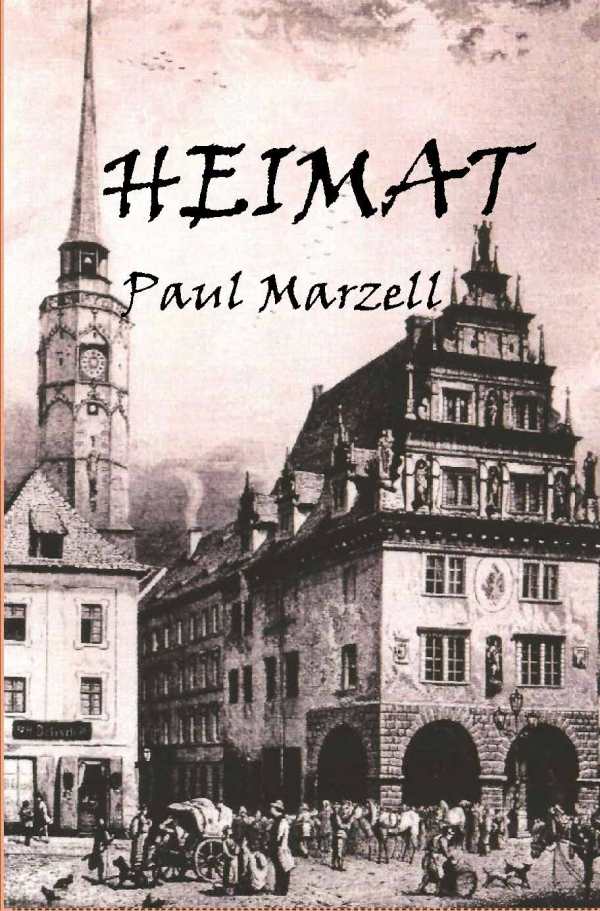Heimat
In the historical novel Heimat, German immigrants face new challenges in the United States in the 1930s, shifting their understandings of “home.”
In Paul Marzell’s historical novel Heimat, nostalgic longing for their lost homelands and ways of life haunts four young men’s pursuits of the American Dream.
Four friends from a pastoral East German region emigrate to the United States just before Hitler and the Nazis come to power. Matthias and Josef are ethnic Germans, Edo is Jewish, and Feliks is an ethnic Pole. As the four men board the massive ship that will carry them to their new home, they save a stranger who turns out to be a powerful American. He promises to connect the four friends to prosperity (if also political danger).
The story is told via a combination of narrative blocks and letters from Germany. Most of letters are from the family whom Matthias left behind. At first, they describe how individuals and the community are coping with the political and economic upheavals of 1930s Germany and the beginning of World War II. The juxtaposition of different German perspectives opens the door for Matthias and his friends to engage in political analysis beyond stereotypes of good and evil, or of winners and losers.
As the characters interact and converse, their deep connections are revealed. Although the central four are separated after arriving in New York, they never lose track of each other again once they are reunited. Their friendship becomes a haven from which they can reminisce about home. Each navigates how to strike a balance between their loyalty to their home and each other.
Still, despite the emotional thread that connects the men, the narrative is generally inconsistent and ranging. Some paragraphs describe single scenes, often from Matthias perspective, but with inexplicable shifts in tense. Background information is shared in a repetitive fashion.
The prose is direct and literal. It reserves its flourishes for conversations and funny scenes, as when three of the friends knock on the door of a speakeasy and are shocked when the guard is overly familiar with them, asking if they’re the “three village idiots” who’ve been expected. A lighthearted reveal follows. But most of the book is devoted to explorations of politics and ethics, with the men confronting fascism and antisemitism within their relationships and families. It also muses extensively on the concept of home—a concept that, as the men’s years away from Germany lengthen, begins to elude them, too.
In the nostalgic historical novel Heimat, German immigrants face new challenges in the United States in the 1930s, shifting their understandings of “home.”
Reviewed by
Michele Sharpe
Disclosure: This article is not an endorsement, but a review. The publisher of this book provided free copies of the book and paid a small fee to have their book reviewed by a professional reviewer. Foreword Reviews and Clarion Reviews make no guarantee that the publisher will receive a positive review. Foreword Magazine, Inc. is disclosing this in accordance with the Federal Trade Commission’s 16 CFR, Part 255.

